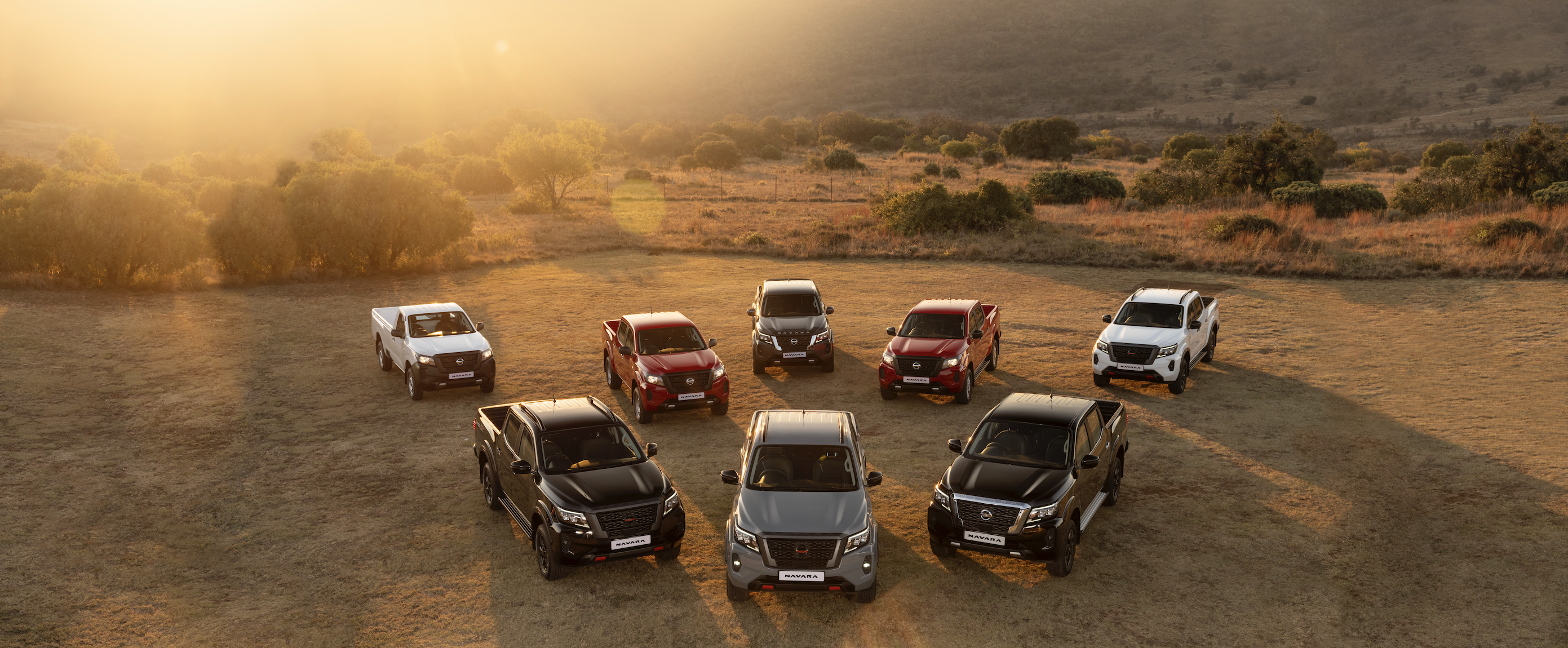
The first Nissan Navara vehicles to be manufactured in Africa by Africans have begun rolling off the Nissan manufacturing production facility in Rosslyn on their way to South Africa and the rest of Africa.
The official start of production (SOP) was witnessed by Mike Whitfield, Africa Regional Business Unit Managing Director; Kabelo Rabotho, Nissan South Africa Country Director; Shafick Solomons, Nissan South Africa Plant Director; and a group of Nissan employees due to COVID-19 regulations, as the rest of the company celebrated the milestone virtually.
“This is a significant day for Nissan continentally,” said Whitfield. “Three years ago, Nissan South Africa had the privilege of answering President Cyril Ramaphosa’s ‘Thuma mina’ call on behalf of Nissan, by pledging R3-billion towards his appeal to rebuild South Africa. Today we are meeting that commitment, vehicles made in Africa for Africa going out into the market.
Rabotho said that COVID-19 had been a major disruption worldwide, but Nissan South Africa employees had been more than up for the challenge.
“I would like to say how immensely proud I am of the committed men and women who endured many challenges under unprecedented conditions to locally produce the Navara in our world-class production facility.”
Solomons agreed: “Our team has been incredible and agile.”
For Solomons, the first vehicle rolling off the production line is the culmination of an intense period of upskilling and training of South African staff to meet and exceed Nissan’s exacting global quality standards, while making Rosslyn the Japanese automaker’s light commercial vehicle manufacturing hub for the continent.
“This first Navara built in our Rosslyn plant for the African market is a significant milestone in the Navara journey, which has been unfolding for a number of years. It speaks to the long-term commitment of Nissan Motor Limited to Africa together with the many men and women who have worked passionately on the project, ensuring that we build the iconic Navara for the African market within Nissan’s global quality standards.”
Nissan had the privilege of graduating 12 Ghanaian engineers who have returned to their own country to start setting up Nissan’s first assembly plant in the West African country next year.
“From a people perspective, it has been very fulfilling and motivational to share our skills and our capabilities across the African continent. There are a lot of positives that come out of this process for us and for Africa,” Solomons continued. “It’s important that we develop this relationship and continue to be seen as one of the leaders in Africa, for Africa.”
Rabotho agreed: “At Nissan South Africa, we understand that our organisational growth is closely tied to that of the community we operate in. Through the Navara, we expect to continue to redefine the light commercial vehicle segment whilst contributing positively to the South African economy.”
Story supplied by NISSAN SA.
The Automotive Industry Development Centre’s Incubation Centre at Nissan
The AIDC offers a facility at the assembly plant in which new companies are accommodated and linked directly to Nissan’s value chain including the production of the Nissan Navara.
In South Africa, the AIDC pioneered the incubation programme with the aim of providing support to emerging black players during their start-up phase. These enterprises benefit from operating within the incubation facility, receiving subsidised rental, mentorship; training; business development and financial support, from industry experts. The initiative is in line with the AIDC’s mandate to create jobs and develop sustainable SMMEs in the automotive sector.
Objectives of the Incubation Centre:
- Identify aspirant entrepreneurs and nurture them into successful businesses,
- Provide business support, mentoring and training to the incubatees,
- Identify opportunities in the automotive sector for new components to be included in the empowerment programme;
- Identify opportunities in the automotive sector so that incubatees can be phased out of the incubation to independently run their businesses.
- The ultimate objective of the incubation is to increase the local content of the sector thereby increasing South Africa’s industry global competitiveness and in support of the 2035 SA Automotive Masterplan.
Some of the outcomes of the incubation programme include:
- The creation of new BBBEE companies in the auto sector
- Job creation within the new companies
- Increase in skills development and training activities
- AIDC’s Incubation programme aided Nissan South Africa to deliver on its long-awaited investment promise of securing Navara’s production in the country. It is the long-term development aspect initiated by Government that impressed the principals in Japan to grant Nissan SA with the rights to produce the Navara line in SA.
